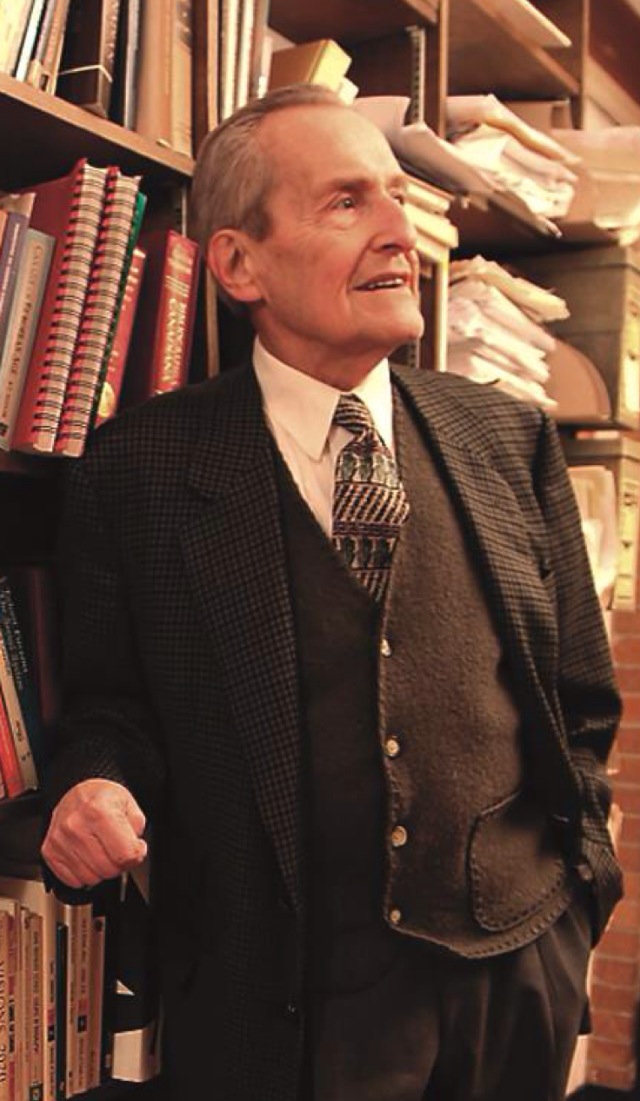Economists suffer from the reputation of either being dull or perhaps (more deservedly), the servants of the entrenched status quo.
Abraham Rotstein, a long-time professor of political economy at the University of Toronto who died on April 27 at the age of 86, defied this set of stereotypes, as he did so many others.
A child of the Depression and the Second World War, Rotstein was educated at McGill University in the immediate postwar years and went on to graduate work, first at the University of Chicago, but dropped out due to his dislike of the dogmatic laissez-faire teachings of young professor Milton Friedman. He found Columbia University a more congenial and intellectually stimulating environment, particularly by the innovative and dissenting teaching voice of Karl Polanyi. Polanyi wrote a ground-breaking wartime study, The Great Transformation, which challenged the corrupted, and then largely accepted, intellectual orthodoxies of laissez-faire capitalism. The youthful Rotstein was captivated by the bracing social critique that Polanyi brought to his work, and so was born a fruitful decade-long partnership between the young mentor and the older professor which ultimately resulted in a study concerning the interrelationship between slavery and the practices of larger Western culture.
Rotstein returned to Toronto where he earned his doctorate writing an innovative thesis on the fur trade and the development of the Canadian state. But he came to greater prominence as an activist-academic, challenging the accepted verities of the day, from opposing greater American and indirect Canadian involvement in the Vietnam war to leading dramatic teach-ins at the University of Toronto on various pressing issues, demand the federal Liberal government address concerns associated with the nation’s economic and political underdevelopment related, he was convinced, to our long-term domination by larger and often hostile American long-term corporate and political interests.
These efforts coincided with a creative five-year editorship of the Canadian Forum (1968-1973). Circulation grew throughout this time, critics (including Robert Fulford) often gushed at the high quality of the magazine and exclusives were secured, including a leaked copy of the pro-nationalist Gray Report, a scoop which helped move an embarrassed Trudeau government in a more nationalist policy direction for the better part of the 1970s and early 1980s.
A logical corollary to these efforts was the catalytic role Rotstein (along with the late Walter Gordon and Peter C. Newman) played in creating the dynamic nationalist-citizen lobbying group Committee For An Independent Canada (CIC) in the early 1970s. During these fermenting years federal legislation protecting Canadian cultural industries (magazines especially) was passed and the CBC was relatively well and securely funded. The CIC played a large part in helping to create such a creative and fertile environment for these cultural accomplishments. Membership peaked in the early thousands, before the group declared a sort of (premature) victory and disbanded in the early 1980s.
Rotstein was a man of personal paradox and contradiction. A man who didn’t suffer fools gladly, he was nevertheless a warm and highly-regarded teacher. A strong supporter of Israel and liberal Jewish causes he nevertheless courted controversy in the 1980s by standing by his principles and arguing that other minority groups and faiths in the Middle East should be protected and their human rights respected. A dedicated civil libertarian, he produced and edited in rapid fashion, a strongly argued collection of essays in 1971 that made the decisive case against the dangers inherent in the (then) excessive invocation of the War Measures Act in 1970. This volume serves as a timely beacon and reminder of the dangers of state overreaction to acts of isolated terror. An apologist for a vigorous Canadian nationalism, he personally possessed a critical cosmopolitan sensibility. At the time of his death he was working on a manuscript exploring how certain modes of consciousness return to haunt, inform and often historically corrupt clear-headed, rational-moral political thought.
Slightly melancholic in latter life, he was acutely aware of battles lost (free trade) and the long odds against winning a more humane long term future for the nation (the globalization struggles of the present and those to come). He was fond of sardonically remarking: “Much will have to change in Canada if the country is to stay the same.”
Rotstein can nonetheless be properly seen in retrospect as a prototype for the kind of activist-academic who speak truth to power, for example, such current luminaries as Thomas Piketty in France or anthropologist-Occupy activist David Graeber in England or Canada’s own Naomi Klein. Writing in the Star in 1973, the journalist Trent Frayne observed of Rotstein’s impact, “What he’s been writing and saying about the national scene has turned the country around. As much as any thinking man, and more than most, he has alerted us to the perils of foreign ownership.” Perhaps in retrospect, a premature declaration of virtuous victory.
Rotstein may have ultimately lost more political battles than he would have liked, but what a witty and determined exemplar this intellectual warrior was.
Toby Zanin was Professor Abraham Rotstein’s last research assistant. His work has appeared on CBC Radio and International Journal, Behind The Headline and other publications.




